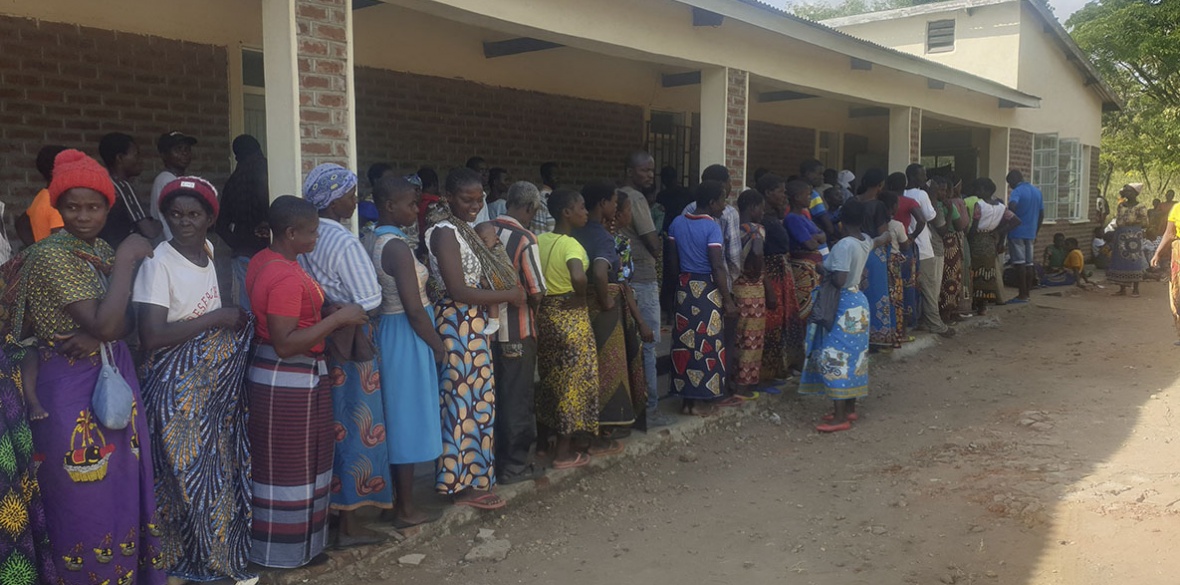This is the last article you can read this month
You can read more article this month
You can read more articles this month
Sorry your limit is up for this month
Reset on:
Please help support the Morning Star by subscribing here
MALAWI declared a state of disaster on Sunday across most of the southern African nation as it struggles to cope with a drought that has paralysed food supply.
President Lazarus Chakwera said 23 of its 28 districts have been hit by the drought and Malawi urgently needs more than $200 million (£159m) in humanitarian assistance.
Malawi is the latest country in the region to have its food supply crippled by a severe dry spell that’s been linked to the El Nino weather phenomenon.
Less than a month ago neighbouring Zambia made a similar appeal for help and Zimbabwe has also seen much of its crop decimated and is considering declaring a drought disaster.
Late last year the United Nations World Food Programme (WFP) warned that numerous nations in southern Africa were on the brink of a hunger crisis because of the impact of El Nino — a recurring weather phenomenon involving the warming of the sea surface in parts of the Pacific Ocean.
El Nino has impacts on global weather, including causing below-average rainfall in southern Africa. Some scientists say that climate change is making El Ninos stronger and their impacts more extreme.
The WFP said there were already nearly 50 million people in southern and parts of central Africa facing food insecurity even before one of the driest spells in decades hit.
Last month was the driest February in 40 years for Zambia and Zimbabwe, according to the WFP’s seasonal monitor, while Malawi, Mozambique and parts of Angola had “severe rainfall deficits.”
Millions in southern Africa rely on the food they grow to survive. Maize, the region’s staple food, has been badly affected by the drought.
Humans aren’t the only ones affected, with conservation officials in Zimbabwe reporting the rare occurrence of at least 100 elephants dying in a national park late last year because of waterholes drying up.
Before the national disaster announcements by Malawi and Zambia, the WFP and USAid had already launched a programme to feed 2.7 million people in rural Zimbabwe facing food shortages — nearly 20 per cent of that country’s population.
Oxfam said this month that more than six million people in Zambia — 30 per cent of its population — are now facing acute food shortages and malnutrition.
President Chakwera said the government found about 44 per cent of Malawi’s corn crop had failed and called on the international community to help provide the 600,000 metric tons of food aid the country needed.










